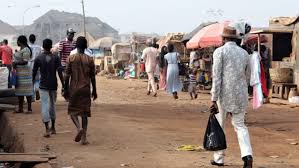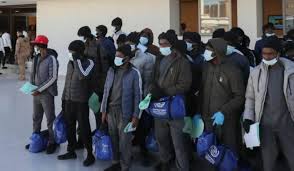The World Bank Group has revealed that about 139 million Nigerians are currently living in poverty despite recent government reforms that have boosted revenues across all tiers of government.
The disclosure was made by Mathew Verghis, Country Director for World Bank Nigeria, at the launch of the Nigeria Development Update (NDU) in Abuja on Wednesday, October 8.
Verghis noted that poverty levels, which began rising in 2019 due to policy missteps and external shocks—including the COVID-19 pandemic—have continued to increase even after the implementation of major economic reforms.
According to him, Nigeria’s economic indicators show signs of recovery, with rising revenues, improving debt sustainability, a stabilising foreign exchange market, increasing reserves, and easing inflation.
“These results are exactly what you need to see in a stabilisation process. These are big achievements. However, despite these stabilisation gains, many Nigerians are still struggling. Most households are grappling with eroded purchasing power,” Verghis said.
“In 2025, we estimate that 139 million Nigerians live in poverty. The challenge is clear—how to translate the gains from stabilisation reforms into better living standards for all.”
He stressed that to tackle the deepening poverty, Nigeria must reduce inflation—especially food inflation, improve the efficiency of public spending, and expand social safety nets to protect vulnerable citizens.
“Food inflation affects everyone, but particularly the poor, and it has the potential to undermine political support for reforms. Public resources must be used more effectively to drive real development results that benefit people, and the safety net must be expanded to ensure support for the poorest,” he added.
Presenting an overview of the report titled “From Policy to People: Bringing the Reform Gains Home,” Samer Matta, World Bank Lead Economist for Nigeria, said that gross revenues distributed as federation allocations have risen significantly in the first eight months of 2025.
However, Matta expressed concern about the large deductions made by revenue-collecting agencies, noting that such deductions do not contribute meaningfully to development outcomes.
He described Nigeria’s economic outlook as “cautiously optimistic,” supported by steady growth, easing inflation, fiscal stability, and a strong external position, though still facing ongoing risks.
According to the NDU report, GDP growth is projected to rise modestly to 4.4 percent by 2027, driven by strong performance in the services sector, a rebound in agriculture, and improved industrial activity within a more stable macroeconomic environment.
The World Bank expects inflation to ease to 15.8 percent by 2027, supported by tight monetary policy and improved supply conditions. The fiscal deficit is projected to average 2.7 percent of GDP between 2026 and 2027, buoyed by higher tax revenues and lower interest payments—keeping public debt stable at around 40 percent of GDP.
The report also showed an increase in capital expenditure (capex) by both federal and subnational governments. At the subnational level, capex now accounts for about 60–65 percent of total spending, rising from nearly 1 percent of GDP in 2022 to a projected 2.7 percent in 2025.
However, at the federal level, wages and salaries still consume around 70 percent of total spending, leaving limited fiscal space for capital investments.
“The outlook remains subject to several risks—growth and disinflation could be undermined by oil price shocks, reform fatigue, election uncertainties, and climate-related disruptions,” the report warned.




